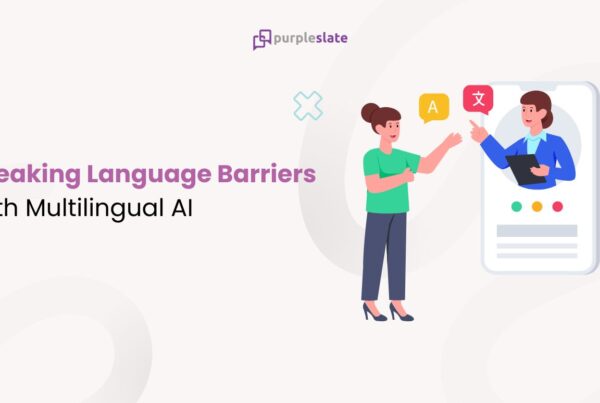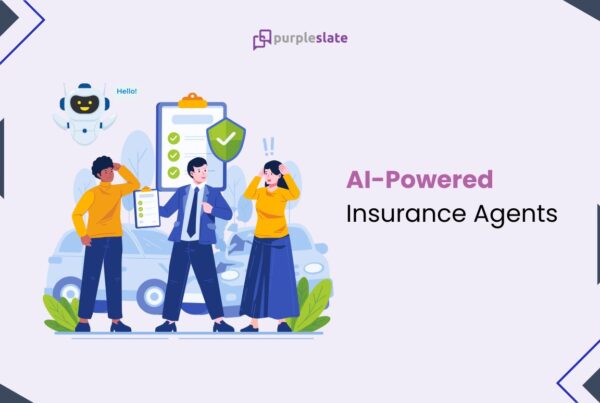
Introduction
Navigating the complexities of insurance can often feel overwhelming for policyholders, especially when they’re faced with cumbersome processes and limited access to information. Traditional customer service models often result in long wait times, frustrating communication hurdles, and a lack of immediate solutions to common inquiries. This challenge can lead to dissatisfaction and disengagement, as policyholders may struggle to get the answers they need when they need them.
The rise of self-service portals has transformed the landscape of customer support in insurance, offering a way to alleviate these frustrations. However, many self-service options fall short of meeting the expectations of today’s tech-savvy consumers. This is where AI steps in as a game-changer. By harnessing the power of artificial intelligence, insurers can enhance their self-service portals, providing policyholders with an intuitive, efficient, and personalized experience that empowers them to manage their insurance needs effortlessly.
The Rise of Self-Service Portals in Insurance
Self-service portals have become an essential component of the insurance industry, catering to the growing demand for immediate access to information and services. These platforms allow policyholders to manage their insurance needs independently, significantly improving the customer experience. Here’s how self-service portals are transforming insurance:
Convenience and Accessibility: Policyholders can access their accounts anytime and anywhere, eliminating the need to contact customer service for basic inquiries. This flexibility is particularly valuable for those with busy schedules or those who prefer handling their affairs digitally.
Empowerment Through Information: Self-service portals provide policyholders with easy access to their policy documents, coverage details, and claim statuses. This transparency empowers customers to make informed decisions about their insurance needs.
Streamlined Processes: Tasks such as filing claims, making payments, and updating personal information can be completed in a few clicks. This streamlining reduces the friction often associated with traditional processes, leading to higher customer satisfaction.
Cost-Effectiveness for Insurers: By enabling policyholders to handle routine inquiries and transactions on their own, insurers can reduce operational costs and allocate resources to more complex customer service issues.
As the demand for self-service options continues to rise, the integration of AI is crucial for enhancing these platforms and maximizing their potential.
The Role of AI in Enhancing Self-Service Portals
Artificial Intelligence is revolutionizing the functionality and efficiency of self-service portals in the insurance industry. By leveraging AI technology, insurers can create more responsive, user-friendly, and intelligent self-service experiences for policyholders. Here are some key ways AI enhances self-service portals:
Personalized User Experience: AI algorithms analyze user behavior and preferences to deliver tailored experiences. This includes personalized recommendations for coverage options or customized content based on previous interactions, making it easier for policyholders to find the information they need.
Natural Language Processing (NLP): AI-powered chatbots equipped with NLP capabilities allow policyholders to interact with the portal using everyday language. This capability enhances the user experience by enabling intuitive conversations that can address queries, guide users through processes, and provide instant responses.
Automating Routine Tasks: AI can automate common tasks, such as filing claims, checking policy status, or updating personal information. By handling these routine inquiries, AI reduces the workload on customer service representatives and allows them to focus on more complex issues.
Real-Time Support: AI enhances self-service portals with real-time support, enabling policyholders to receive immediate assistance. Whether it’s troubleshooting a technical issue or answering a policy-related question, AI ensures that users get timely help without waiting in long queues.
Continuous Learning and Improvement: AI systems learn from user interactions and feedback, enabling continuous improvement of the self-service portal. This adaptability ensures that the portal evolves alongside changing customer needs and preferences, maintaining a high level of service.
Through these enhancements, AI not only improves the functionality of self-service portals but also elevates the overall customer experience, fostering a more engaged and satisfied policyholder base.
Features of AI-Powered Self-Service Portals
AI-powered self-service portals come equipped with various features designed to enhance user experience and provide comprehensive support to policyholders. These features contribute to a more efficient and effective insurance process:
24/7 Accessibility and Support: AI enables self-service portals to be available round the clock, allowing policyholders to access their accounts and seek assistance anytime, regardless of business hours. This constant availability increases customer satisfaction by providing support when it’s most needed.
Personalized Recommendations and Services: By analyzing customer data, AI can offer personalized recommendations for policy upgrades, add-ons, or other products that suit individual needs. This tailored approach helps policyholders make informed decisions and fosters a sense of care from their insurers.
Integration with Other Digital Channels: AI-powered portals can seamlessly integrate with various digital channels, including mobile apps, social media, and email. This integration ensures a consistent experience across platforms and allows policyholders to switch between them effortlessly.
User-Friendly Interface: AI enhances the design and functionality of self-service portals, making them more intuitive and user-friendly. Clear navigation, easy access to information, and guided workflows help users complete their tasks with minimal effort.
Data Analytics and Insights: AI collects and analyzes user interactions to provide insurers with valuable insights into customer behavior and preferences. This data can inform business strategies, helping insurers improve their services and offerings.
With these features, AI-powered self-service portals not only streamline the insurance process but also create a more engaging and satisfying experience for policyholders.
Benefits for Insurers and Policyholders
Implementing AI in self-service portals yields significant advantages for both insurers and policyholders. Here are the key benefits:
Increased Efficiency and Reduced Operational Costs: By automating routine tasks and inquiries, AI helps insurers reduce operational costs while improving response times. This efficiency allows companies to allocate resources to more complex issues that require human intervention.
Improved Customer Satisfaction and Engagement: With quicker access to information and personalized support, policyholders experience higher satisfaction levels. Engaged customers are more likely to remain loyal and advocate for their insurers.
Data-Driven Decision Making: AI provides insurers with valuable insights into customer preferences and behavior, allowing them to make informed decisions regarding policy offerings, marketing strategies, and customer engagement initiatives.
Scalability: AI-powered self-service portals can easily scale to accommodate growing customer bases without compromising service quality. This scalability is particularly beneficial for insurers looking to expand their reach and attract new customers.
Enhanced Competitive Advantage: Insurers that adopt AI in their self-service portals position themselves as innovative and customer-centric. This forward-thinking approach can help them stand out in a crowded market.
By embracing AI technology, insurers can create a win-win scenario that enhances the overall insurance experience for policyholders while improving their operational efficiency and effectiveness.
Challenges and Considerations
While implementing AI in self-service portals offers numerous benefits, insurers must also be aware of potential challenges and considerations:
Integration with Legacy Systems: Many insurance companies still rely on outdated systems that may not easily integrate with new AI technologies. Ensuring a smooth transition and compatibility can be a significant challenge.
Data Security and Privacy Concerns: Protecting sensitive customer information is paramount. Insurers must implement robust security measures to safeguard data and ensure compliance with privacy regulations.
User Adoption: While self-service portals can enhance the user experience, not all policyholders may be comfortable using them. Insurers must provide training and support to encourage adoption and ensure that users feel confident navigating the system.
Continuous Maintenance and Updates: AI technology is continually evolving, requiring insurers to commit to ongoing maintenance and updates. Staying current with advancements is essential for maximizing the effectiveness of AI-powered portals.
Understanding Customer Needs: Insurers need to invest time in understanding their policyholders’ needs and preferences to design an effective self-service portal. Failing to do so can result in a system that does not meet customer expectations.
Addressing these challenges proactively will help insurers successfully implement AI in their self-service portals and provide a superior experience for policyholders.
Conclusion
AI is transforming the insurance landscape by empowering self-service portals that enhance policyholder interactions. By providing personalized, intuitive, and efficient services, AI-driven portals enable policyholders to manage their insurance needs more effectively while reducing the operational burdens on insurers.
At purpleSlate, we are committed to helping insurance providers leverage AI to optimize their self-service offerings. Our innovative solutions ensure that insurers can create user-friendly portals that not only meet but exceed the expectations of modern consumers. By embracing AI technology, insurers can foster greater engagement, enhance customer satisfaction, and streamline their operations, paving the way for a more responsive and effective insurance experience.




